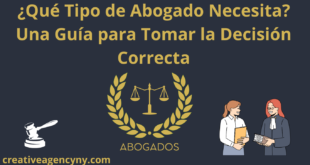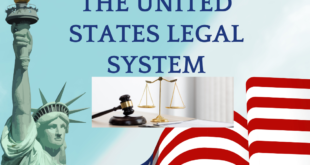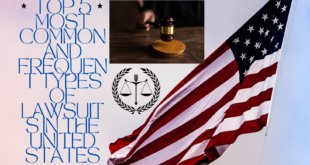
Banks, loans, and lawyers are three elements that can be present in many aspects of people’s lives in the United States. Whether it is to buy a house, start a business, settle a debt, or face a trial, it is likely that you will need the intervention of some of these entities or professionals.
However, legal problems can also arise with them, which can affect your rights, interests, and assets. Therefore, it is important to know the laws that regulate these matters and how to act in case of conflict.
In this article, we will provide an overview of the most common legal problems that can arise with banks, loans, and lawyers in the United States, and how you can solve them or prevent them.
Legal Problems with Banks
Banks are financial institutions that offer services such as checking accounts, savings, credit cards, investments, transfers, etc. Banks are regulated by federal and state laws, which aim to protect consumers and ensure the stability of the financial system.
Some of the legal problems that can arise with banks are:
Bank fraud: It is the illegal or deceptive use of banking services or products, either by the bank or by third parties. For example, identity theft, phishing, skimming, unauthorized use of cards, charging fees or interest improperly, falsifying documents, etc.
Bank discrimination: It is the unequal or unfair treatment of customers or potential customers by the bank, based on reasons such as race, gender, age, religion, nationality, marital status, disability, etc. For example, rejecting or imposing unfavorable conditions to grant a loan, an account, or a card, closing or limiting services, harassing or intimidating, etc.
Breach of contract: It is the failure to comply with the obligations or terms established in the contract between the bank and the customer, either by the bank or the customer. For example, non-payment of a loan, non-compliance with the conditions of an account or a card, unilateral modification of the clauses, lack of information or transparency, etc.
Legal Problems with Loans
Loans are financial transactions in which a person or entity lends a certain amount of money to another, who agrees to return it within a period and with a certain interest. Loans can be personal, mortgage, student, commercial, etc. Loans are regulated by federal and state laws, which aim to protect borrowers and lenders, and prevent abuse or usury.
Some of the legal problems that can arise with loans are:
Préstamo predatorio: Es el otorgamiento de préstamos en condiciones desproporcionadas, injustas o ilegales, que perjudican al prestatario y benefician al prestamista. Por ejemplo, préstamos con intereses excesivos, cláusulas abusivas, cargos ocultos, prácticas engañosas, etc.
Préstamo ilegal: Es el otorgamiento de préstamos sin cumplir con los requisitos o normas legales, lo que puede implicar la nulidad o ilegalidad del contrato. Por ejemplo, préstamos sin licencia, sin documentación, sin garantía, sin verificación de ingresos, etc.
Incumplimiento: Es la falta de pago del préstamo en el tiempo o forma pactada, lo que puede generar consecuencias legales para el prestatario y el prestamista. Por ejemplo, el cobro de recargos por mora, el inicio de un proceso legal, el embargo de bienes, el informe a agencias de crédito, etc.
Problemas Legales con los Abogados
Los abogados son profesionales del derecho que ofrecen servicios jurídicos a las personas o entidades que los contratan, ya sea asesorarlos, representarlos o defenderlos en asuntos legales. Los abogados están regulados por leyes federales y estatales, y por códigos de ética profesional, cuyo objetivo es garantizar la calidad, competencia y responsabilidad de su práctica.

Some of the legal problems that can arise with lawyers are:
Negligencia profesional: Es el incumplimiento de los deberes u obligaciones que el abogado tiene con su cliente, que le causa daño o perjuicio. Por ejemplo, el incumplimiento de plazos, la falta de diligencia, la omisión de información, el error de estrategia, la pérdida de documentos, etc.
Conflicto de intereses: Es la situación en la que el abogado tiene intereses personales o profesionales que pueden interfiera con los intereses de su cliente, o que pueda afectar su independencia o lealtad. Por ejemplo, representar a dos partes con intereses opuestos, tener una relación personal con la parte contraria, recibir un beneficio del resultado del caso, etc.
Disputa de honorarios: Es el desacuerdo entre el abogado y el cliente sobre el monto o la forma. de pago por los servicios jurídicos prestados. Por ejemplo, cobrar tarifas excesivas o irrazonables, no proporcionar un acuerdo escrito o una factura, no devolver un anticipo, no aplicar una tarifa de contingencia, etc.
Conclusión
Estos son sólo algunos de los problemas legales que pueden surgir con bancos, préstamos y abogados. en los Estados Unidos. Como has podido comprobar, cada uno de ellos tiene sus particularidades y dificultades, y requiere la intervención de profesionales cualificados.
Therefore, it is important that you inform yourself well about the process that you have to follow, that you look for the right lawyer for your case, and that you trust his or her judgment and experience.
Remember that legal problems are serious matters that can have a great impact on your life. Therefore, do not leave them to chance or face them without help. Navigating legal problems can be a challenge, but also an opportunity to defend your rights and obtain justice.
 Creative agency information Information about media, marketing y creative
Creative agency information Information about media, marketing y creative



